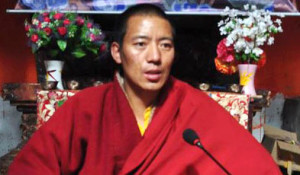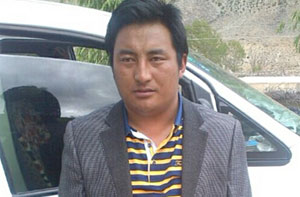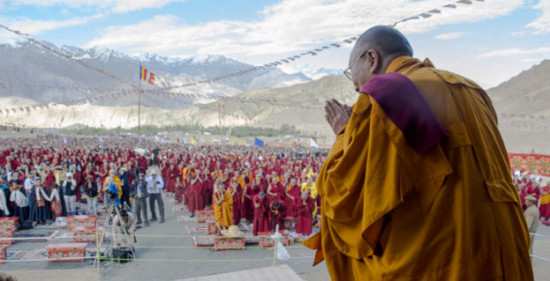New information about imprisoned Tibetan abbot raises fears for his well-being

Khenpo Kartse was detained on December 21, 2013.
(Photo: Tsering Woeser)
Two more Tibetan political prisoners released after fulfilling their sentences

Sonam Norgye (Photo: RFA)
Dalai Lama arrives in Ladakh ahead of Kalachakra teachings

The Dalai Lama in Ladakh, India (Photo: www.dalailama.com)
His Holiness the 14th Dalai Lama arrived in Ladakh, India, last week in advance of Buddhist teachings he will deliver from July 3-14, 2014. Noting that Ladakhis cheerfully lined the roads to greet His Holiness, accounts of his travels through the Ladakh region detailed visits to Leh, Likir, Spituk monastery, and more. For more please see this slideshow of images on DalaiLama.com.
Prominent Sinologists Debate Confucius Institutes on ChinaFile
China scholars including Perry Link, Jeffrey Wasserstrom, Jerome A. Cohen, and Jonathan Mirsky wrote pieces in response to a growing tide of criticism against Confucius Institutes, the Chinese government-run network of classrooms. This debate, which centered on the potential damage Confucius Institutes could do to the academic freedom of their host universities around the globe, comes just weeks after the American Association of University Professors called on universities to re-evaluate their relationships with Confucius Institutes over these same concerns. Two universities, one in Canada and one in France, have already closed their Confucius Institutes.
ICT President Matteo Mecacci contributed to the debate, which had already touched on the potential for the government-run network to try to stifle discussions on Tibet and discourage visits from the Dalai Lama to host universities. Writing about ICT’s interactions with a Confucius Institute, Matteo Mecacci said:
In our own investigation, in 2011 the International Campaign for Tibet (while not identifying our Tibet connection) requested resource materials on Tibet from a Confucius Institute at a university in the Washington, D.C. region. Instead of scholarly materials published by credible American authors (not to speak of Tibetan writers) what we received were books and DVDs giving the Chinese narrative on Tibet published by China Intercontinental Press, which is described by a Chinese government-run website as operating “under the authority of the State Council Information Office…whose main function is to produce propaganda products.”

